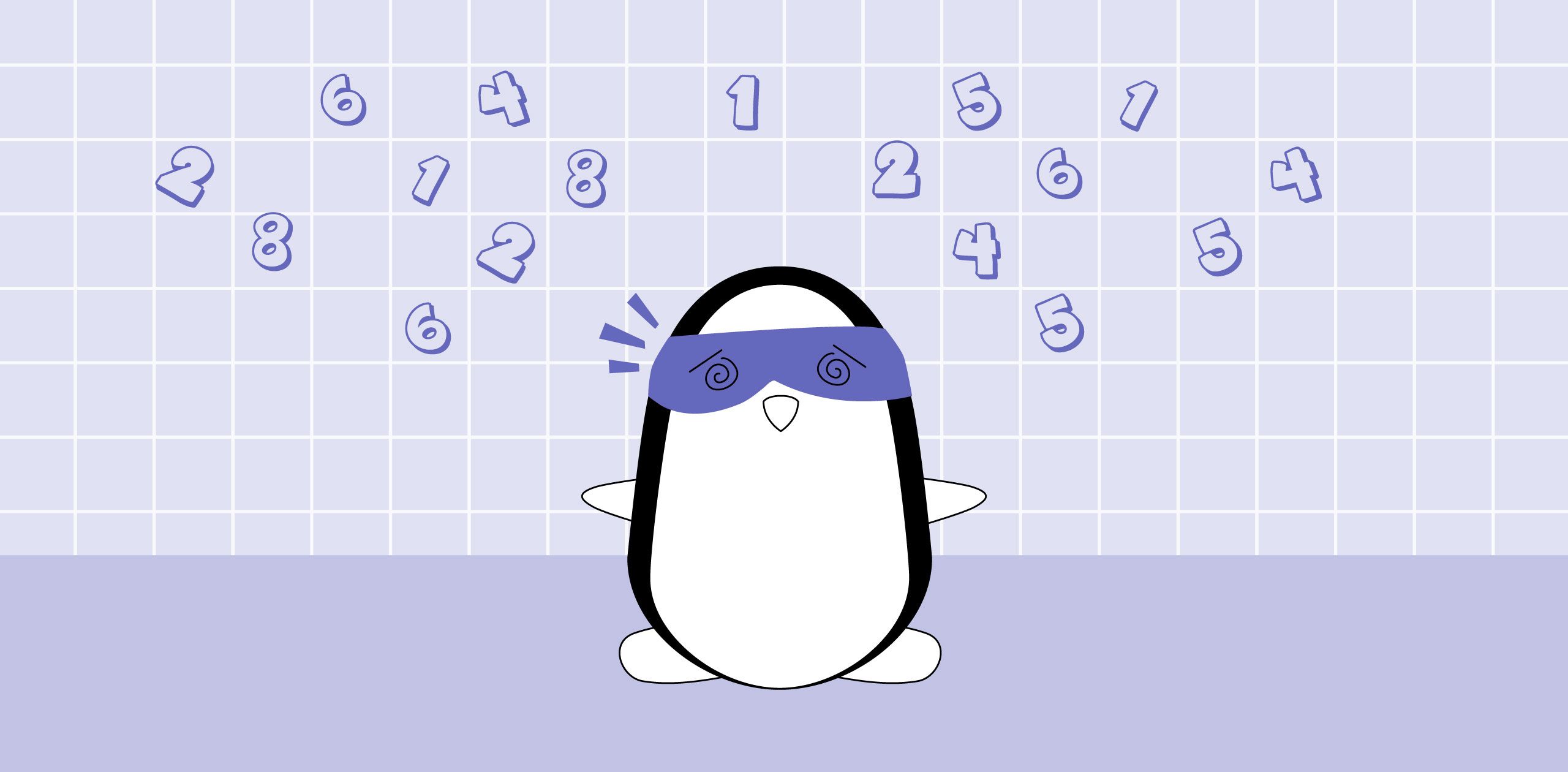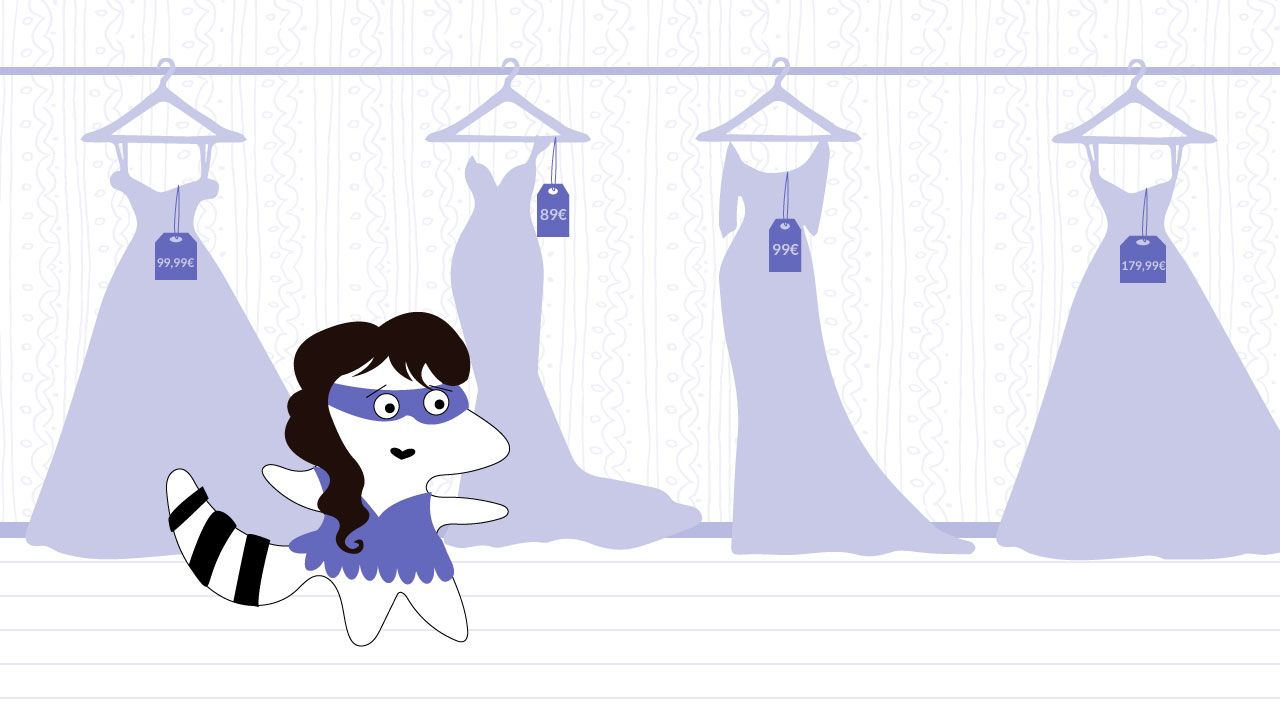
Numbers are an important part of any language, and German is no exception. If you are just starting your journey with learning German, numerals from 0 to 100 is one of the first topics you’ll learn.
Whether you are taking a short trip to Germany or trying to refresh your knowledge of the German language, remember to take your time with this topic. After all, numbers are used in everyday conversation, in addresses, in phone numbers, and in many other contexts. Knowing German numbers will ensure you have the most effective communication with native speakers.
So, what are you waiting for? Let’s explore the topic of German numbers and help you get the hang of some tricky combinations. Read on.
Learn German with Langster
0 to 10
The numbers from 0 to 10 are some of the first ones you will learn in German. They are used frequently in everyday conversation, so it is important to know them well.
Fortunately, counting from 0 to 10 in German is pretty easy. You will have to memorize them, but these basic numbers are short and simple. Let's have a look (and listen) at them:
| number | pronunciation |
|---|---|
| 0 | null |
| 1 | eins |
| 2 | zwei |
| 3 | drei |
| 4 | vier |
| 5 | fünf |
| 6 | sechs |
| 7 | sieben |
| 8 | acht |
| 9 | neun |
| 10 | zehn |
| number | pronunciation |
|---|---|
| 0 | null |
| 1 | eins |
| 2 | zwei |
| 3 | drei |
| 4 | vier |
| 5 | fünf |
| 6 | sechs |
| 7 | sieben |
| 8 | acht |
| 9 | neun |
| 10 | zehn |
Pretty simple, right? Now, repeat them a few more times today and tomorrow to make sure these basic numerals stay in your German vocabulary for longer.
11 to 19

The second group of numbers we will look at is from 11 to 19. This is where the situation gets a little bit complicated, but worry not: there is a certain pattern that numbers in this group follow.
Most of these numbers only require one additional syllable to be added to the previous group: you take the first four letters of the number between three and nine and add the word zehn (ten) to them. The only exceptions are numbers eleven and twelve, which you'll have to memorize. All the other numbers follow the same pattern.
| number | pronunciation |
|---|---|
| 11 | elf |
| 12 | zwölf |
| 13 | dreizehn |
| 14 | vierzehn |
| 15 | fünfzehn |
| 16 | sechszehn |
| 17 | siebzehn |
| 18 | achtzehn |
| 19 | neunzehn |
| number | pronunciation |
|---|---|
| 11 | elf |
| 12 | zwölf |
| 13 | dreizehn |
| 14 | vierzehn |
| 15 | fünfzehn |
| 16 | sechszehn |
| 17 | siebzehn |
| 18 | achtzehn |
| 19 | neunzehn |
20 to 90: Multiplied by 10
The next group we will look at, 20 to 90, is again very easy to remember, as it follows another similar pattern of naming numbers. Here, the German language uses a multiplier (basic numbers from 4 to 9) and adds a -zig suffix.
Most of the numbers in this group are regular, but 20 and 30 are exceptions: twenty is zwanzig, and thirty is dreiiβig.
Let's take a look at the list – read and repeat:
| Number | Pronunciation |
|---|---|
| 20 | zwanzig |
| 30 | dreißig |
| 40 | vierzig |
| 50 | fünfzig |
| 60 | sechzig |
| 70 | siebzig |
| 80 | achtzig |
| 90 | neunzig |
| Number | Pronunciation |
|---|---|
| 20 | zwanzig |
| 30 | dreißig |
| 40 | vierzig |
| 50 | fünfzig |
| 60 | sechzig |
| 70 | siebzig |
| 80 | achtzig |
| 90 | neunzig |
Now you know all the basics – pretty simple, right? But, these numbers in German were just the beginning – let’s move to more complex cases.
Complex Numbers: 21, 22, 23…

In German, when you want to talk about a number that is not just a single digit, the process of constructing that number gets a bit more complicated. But, don't worry – with a little practice, you'll be able to handle numbers like 21, 22, or 23 with ease.
Fortunately, all the complex numbers in German follow the same pattern. Here are some points:
- In English, we are used to saying “twenty-one,” “twenty-two,” etc. when it comes to complex nouns. In German, however, it would be the other way round: “one and twenty,” “two and twenty,” etc..
- In English, numbers are written with a dash. In German, they are combined into one big compound word.
Getting used to swapping around may take some time, as well as remembering to write everything as one word. But, with a little practice, you will learn German numbers fluently. Moreover, if you ask us, French numbers are much more complicated.
Now, let’s practice a bit with twenties:
| Number | Formula | Pronunciation |
|---|---|---|
| 21 | one + and + twenty | einundzwanzig |
| 22 | two + and + twenty | zweiundzwanzig |
| 23 | three + and + twenty | dreiundzwanzig |
| 24 | four + and + twenty | vierundzwanzig |
| 25 | five + and + twenty | fünfundzwanzig |
| 26 | six + and + twenty | sechsundzwanzig |
| 27 | seven + and + twenty | siebenundzwanzig |
| 28 | eight + and + twenty | achtundzwanzig |
| 29 | nine + and + twenty | neunundzwanzig |
| Number | Formula | Pronunciation |
|---|---|---|
| 21 | one + and + twenty | einundzwanzig |
| 22 | two + and + twenty | zweiundzwanzig |
| 23 | three + and + twenty | dreiundzwanzig |
| 24 | four + and + twenty | vierundzwanzig |
| 25 | five + and + twenty | fünfundzwanzig |
| 26 | six + and + twenty | sechsundzwanzig |
| 27 | seven + and + twenty | siebenundzwanzig |
| 28 | eight + and + twenty | achtundzwanzig |
| 29 | nine + and + twenty | neunundzwanzig |
Now, are you ready for the whole list? Here are the remaining complex numbers in German:
30s:
| Number | Pronunciation |
|---|---|
| 31 | einunddreiβig |
| 32 | zweiunddreiβig |
| 33 | dreiunddreiβig |
| 34 | vierunddreiβig |
| 35 | fünfunddreiβig |
| 36 | sechsunddreiβig |
| 37 | siebenunddreiβig |
| 38 | achtunddreiβig |
| 39 | neununddreiβig |
| Number | Pronunciation |
|---|---|
| 31 | einunddreiβig |
| 32 | zweiunddreiβig |
| 33 | dreiunddreiβig |
| 34 | vierunddreiβig |
| 35 | fünfunddreiβig |
| 36 | sechsunddreiβig |
| 37 | siebenunddreiβig |
| 38 | achtunddreiβig |
| 39 | neununddreiβig |
40s:
| Number | Pronunciation |
|---|---|
| 41 | einundvierzig |
| 42 | zweiundvierzig |
| 43 | dreiundvierzig |
| 44 | vierundvierzig |
| 45 | fünfundvierzig |
| 46 | sechsundvierzig |
| 47 | siebenundvierzig |
| 48 | achtundvierzig |
| 49 | neunundvierzig |
| Number | Pronunciation |
|---|---|
| 41 | einundvierzig |
| 42 | zweiundvierzig |
| 43 | dreiundvierzig |
| 44 | vierundvierzig |
| 45 | fünfundvierzig |
| 46 | sechsundvierzig |
| 47 | siebenundvierzig |
| 48 | achtundvierzig |
| 49 | neunundvierzig |
50s:
| Number | Pronunciation |
|---|---|
| 51 | einundfünfzig |
| 52 | zweiundfünfzig |
| 53 | dreiundfünfzig |
| 54 | vierundfünfzig |
| 55 | fünfundfünfzig |
| 56 | sechsundfünfzig |
| 57 | siebenundfünfzig |
| 58 | achtundfünfzig |
| 59 | neunundfünfzig |
| Number | Pronunciation |
|---|---|
| 51 | einundfünfzig |
| 52 | zweiundfünfzig |
| 53 | dreiundfünfzig |
| 54 | vierundfünfzig |
| 55 | fünfundfünfzig |
| 56 | sechsundfünfzig |
| 57 | siebenundfünfzig |
| 58 | achtundfünfzig |
| 59 | neunundfünfzig |
60s:
| Number | Pronunciation |
|---|---|
| 61 | einundsechzig |
| 62 | zweiundsechzig |
| 63 | dreiundsechzig |
| 64 | vierundsechzig |
| 65 | fünfundsechzig |
| 66 | sechsundsechzig |
| 67 | siebenundsechzig |
| 68 | achtundsechzig |
| 69 | neunundsechzig |
| Number | Pronunciation |
|---|---|
| 61 | einundsechzig |
| 62 | zweiundsechzig |
| 63 | dreiundsechzig |
| 64 | vierundsechzig |
| 65 | fünfundsechzig |
| 66 | sechsundsechzig |
| 67 | siebenundsechzig |
| 68 | achtundsechzig |
| 69 | neunundsechzig |
70s:
| Number | Pronunciation |
|---|---|
| 71 | einundsiebzig |
| 72 | zweiundsiebzig |
| 73 | dreiundsiebzig |
| 74 | vierundsiebzig |
| 75 | fünfundsiebzig |
| 76 | sechsundsiebzig |
| 77 | siebenundsiebzig |
| 78 | achtundsiebzig |
| 79 | neunundsiebzig |
| Number | Pronunciation |
|---|---|
| 71 | einundsiebzig |
| 72 | zweiundsiebzig |
| 73 | dreiundsiebzig |
| 74 | vierundsiebzig |
| 75 | fünfundsiebzig |
| 76 | sechsundsiebzig |
| 77 | siebenundsiebzig |
| 78 | achtundsiebzig |
| 79 | neunundsiebzig |
80ies:
| Number | Pronunciation |
|---|---|
| 81 | einundachtzig |
| 82 | zweiundachtzig |
| 83 | dreiundachtzig |
| 84 | vierundachtzig |
| 85 | fünfundachtzig |
| 86 | sechsundachtzig |
| 87 | siebenundachtzig |
| 88 | achtundachtzig |
| 89 | neunundachtzig |
| Number | Pronunciation |
|---|---|
| 81 | einundachtzig |
| 82 | zweiundachtzig |
| 83 | dreiundachtzig |
| 84 | vierundachtzig |
| 85 | fünfundachtzig |
| 86 | sechsundachtzig |
| 87 | siebenundachtzig |
| 88 | achtundachtzig |
| 89 | neunundachtzig |
90ies:
| Number | Pronunciation |
|---|---|
| 91 | einundneunzig |
| 92 | zweiundneunzig |
| 93 | dreiundneunzig |
| 94 | vierundneunzig |
| 95 | fünfundneunzig |
| 96 | sechsundneunzig |
| 97 | siebenundneunzig |
| 98 | achtundneunzig |
| 99 | neunundneunzig |
| Number | Pronunciation |
|---|---|
| 91 | einundneunzig |
| 92 | zweiundneunzig |
| 93 | dreiundneunzig |
| 94 | vierundneunzig |
| 95 | fünfundneunzig |
| 96 | sechsundneunzig |
| 97 | siebenundneunzig |
| 98 | achtundneunzig |
| 99 | neunundneunzig |
100 to 1000
And now, back to the simpler topic: hundreds. In order to form them, you just need the word “hundred”:
| Number | Pronunciation |
|---|---|
| 100 | einhundert |
| Number | Pronunciation |
|---|---|
| 100 | einhundert |
And to it, add the multiplier:
| 200 | zweihundert |
| 300 | dreihundert |
| 400 | vierhundert |
| 500 | fünfhundert |
| 600 | sechshundert |
| 700 | siebenhundert |
| 800 | achthundert |
| 900 | neunhundert |
| 200 | zweihundert |
| 300 | dreihundert |
| 400 | vierhundert |
| 500 | fünfhundert |
| 600 | sechshundert |
| 700 | siebenhundert |
| 800 | achthundert |
| 900 | neunhundert |
As you can see, it's a lot like in English.
And, with the thousands, the pattern continues:
| Number | Pronunciation |
|---|---|
| 1000 | eintausend |
| 2000 | zweitausend |
| 3000 | dreitausend |
| Number | Pronunciation |
|---|---|
| 1000 | eintausend |
| 2000 | zweitausend |
| 3000 | dreitausend |
etc...
What About Bigger Numbers?

When it comes to bigger complex numbers, the situation is a bit different than with simple complex numbers such as twenty. German speakers just put the numbers together and create longer and longer strings, all written as one word. For example:
| Number | Pronunciation |
|---|---|
| 125 | einhundertfünfundzwanzig |
| 3699 | dreitausendsechshundertneunundneunzig |
| Number | Pronunciation |
|---|---|
| 125 | einhundertfünfundzwanzig |
| 3699 | dreitausendsechshundertneunundneunzig |
The only exception is when it comes to years – when pronouncing them, German speakers would say something like “nineteen hundred” instead of “one thousand nine hundred.” Like here:
| 1964 | neunzehnhundertvierundsechzig |
| 1964 | neunzehnhundertvierundsechzig |
A Complicated Topic: “One” in German
There are quite a few words for “one” in German, as the number has a few different meanings. A German dictionary can show you different translations for the English word “one”: ein, eins, eine, einen, einer, einem, eines, or even man. So, what should you use, and when?
- When counting something, you will always use the number “eins” – the one we’ve learned above. As in:
German
English
Eins, zwei, drei...
One, two, three…
- When you’re referring to anything else or want to fit this word into a sentence, you have to use the endings that correspond to the German adjectives demanding on the gender and case, eg. ein, eine, einen, einem, einer, eines.
German
English
Unter unserem Haus steht ein Auto.
There is one car under our house.
- When using “one” as an impersonal pronoun, you will use the appropriate German pronoun “man.”
German
English
Man könnte meinen, ich kenne die Antwort.
One might think, I know the answer.
Write Them Down Correctly: Period or Comma?
English speakers often get confused about how to write down German numbers (when written as numerals, of course): with a period, or with a comma? There are just two rules you need to remember here:
- A comma in German is used as a decimal separator:
German
English
10,5 Stunden
10,5 hours
- On the other hand, the period is used as a thousand separator:
German
English
10.000 Meilen
10,000 miles
Cardinal and Ordinal Numbers in German: The Basics

Now that you know all the German cardinal numbers by heart (or at least are familiar with the general patterns), it won’t be hard to construct ordinal numbers. All you need is to take your cardinal number and add a suffix -te. Like this:
| English | German |
|---|---|
| second | zweite |
| fourth | vierte |
| fifth | fünfte |
| English | German |
|---|---|
| second | zweite |
| fourth | vierte |
| fifth | fünfte |
Of course, there are some exceptions, so here are the four most important ones:
| English | German |
|---|---|
| first | erste |
| third | dritte |
| seventh | siebte |
| eighth | achte |
| English | German |
|---|---|
| first | erste |
| third | dritte |
| seventh | siebte |
| eighth | achte |
Final Thoughts on Numbers in the German Language
In this article, we've covered the basics of German numbers — how to use and pronounce them, as well as when to use which form. We also took a look at some more complex examples, such as bigger numbers and year dates.
With these basic tools in your arsenal, you're now ready to tackle anything from simple counting exercises to reading menus in restaurants. Good luck!









